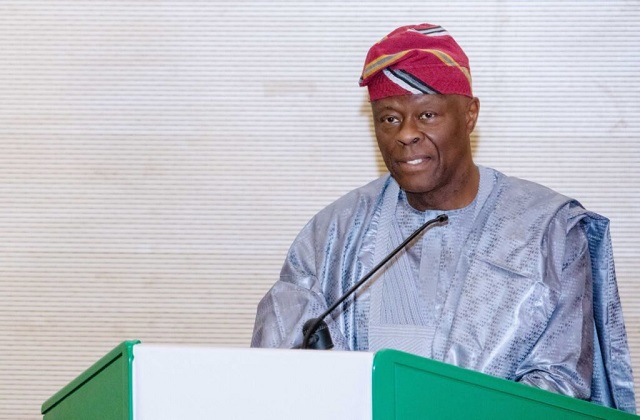The Federal Government has halted the implementation of the controversial four per cent Free on Board (FOB) levy introduced by the Nigeria Customs Service (NCS), following an outcry from importers, trade experts, and business operators who warned of its damaging effects on the economy.
The suspension was conveyed in a letter dated Monday, September 15, 2025, and addressed to the Comptroller-General of Customs.
It was signed by the Permanent Secretary for Special Duties in the Ministry of Finance, Mr. Raymond Omachi, on behalf of the Minister of Finance and Coordinating Minister of the Economy, Mr. Wale Edun, who also serves as Chairman of the NCS Board.
“Following extensive consultations with industry stakeholders, trade experts, and relevant government officials, it has become clear that the implementation of the levy poses significant challenges to trade facilitation, the business environment, and overall economic stability,” the letter stated.
The finance ministry explained that wide-ranging engagements had revealed that the levy would place a significant strain on trade and worsen the country’s economic climate.
Stakeholders, particularly importers and business operators, had repeatedly warned that the charge would worsen inflation, increase the cost of goods, and weaken Nigeria’s trade competitiveness. Many also argued that the levy would complicate efforts to ease the cost of doing business in the country.
The ministry clarified that the suspension does not amount to a cancellation but is intended to allow “further engagement with all relevant stakeholders and a comprehensive review of the levy’s framework and long-term impact on the economy.”
In April 2025, Comptroller-General of Customs, Bashir Adewale Adeniyi, had announced plans to reintroduce the four per cent levy after consultations with stakeholders. The charge, calculated on the Free on Board value of imports, had long faced criticism from the business community for imposing a heavy burden on importers.
The announcement triggered immediate backlash from traders, shipping companies, and manufacturers, who insisted that the move would erode investor confidence and reduce Nigeria’s attractiveness as a trading hub.
In its latest clarification, the finance ministry stressed that the government remains committed to balancing revenue generation with economic growth.
“The Ministry of Finance looks forward to working closely with the Nigeria Customs Service and all relevant parties to develop a more equitable and efficient revenue structure, one that supports government income without undermining trade or economic stability,” the statement added.
Going forward, the Federal Government is expected to engage trade groups, freight forwarders, and importers in fresh consultations aimed at designing a fairer system that does not overburden businesses.
Analysts note that this pause provides authorities an opportunity to align Customs policies with broader reforms targeted at stabilising the naira, reducing inflation, and improving Nigeria’s ease of doing business ranking.
For now, importers have welcomed the decision as a relief in an already challenging business environment. But industry experts caution that any future revenue measures must be carefully designed to avoid disruptions in trade and investment flows.

